
The Greatest Wealth Is Health, Except in the US
dated Sept 30, 2023
The High Cost of Healthcare: The Priciest Dilemma in the US
In the realm of healthcare, the United States stands as the highest spender among developed nations, witnessing an alarming surge in costs. The year 2020 saw the nation’s healthcare expenditures skyrocket to a staggering $4.1 trillion, constituting a formidable 19.7% slice of the U.S. GDP. This marked a significant uptick of 9.7% compared to the preceding year, primarily fueled by the tumultuous impact of the COVID-19 pandemic. Individually, per capita healthcare spending exceeded $12,500 in 2020. Astonishingly, healthcare devours nearly 20 cents out of every dollar invested in the U.S. economy, diverting resources from other vital sectors and straining the financial well-being of American families.
Nonetheless, this exorbitant expenditure does not yield commensurate health benefits, leaving Americans with relatively lacklustre health outcomes compared to their global counterparts. The U.S. lags in life expectancy and grapples with higher rates of chronic conditions such as obesity and diabetes. This disparity raises questions about the efficacy of the healthcare system, highlighting the need for reevaluating the value derived from the substantial financial investments made.
Overcoming Barriers to Quality Care: A Prelude to the Greatest Wealth – Health
A significant contributor to subpar health outcomes in the United States is the presence of obstacles that impede access to timely and high-quality healthcare. As of 2020, a concerning 9.6% of the U.S. population, amounting to 31 million individuals, found themselves without health insurance. While the Affordable Care Act aimed to broaden coverage, millions still grapple with the unattainability of insurance due to prohibitive costs or restrictive eligibility criteria. This lack of insurance often leads to individuals postponing necessary medical attention due to financial concerns, ultimately resulting in more adverse health consequences.
For those fortunate enough to possess insurance, the escalating out-of-pocket expenses in the form of deductibles and copayments have exacerbated the financial strain on Americans. Survey data underscores this predicament, revealing that over half of U.S. adults have deferred healthcare in the past year solely due to financial considerations. The ominous spectre of medical debt looms large, with one-fifth of households burdened by unpaid medical bills. The weight of this financial burden falls disproportionately on the shoulders of the economically disadvantaged, the uninsured, and those living with chronic illnesses. In the pursuit of bridging these disparities, one recurring truth remains evident – the greatest wealth truly is health.
Addressing Health Inequities: Bridging the Divide
Health disparities of significant magnitude persist across racial, ethnic, and socioeconomic boundaries within the United States. A stark illustration of these inequalities lies in the divergence of life expectancy, which spans 30 years between the most affluent and the most impoverished regions in the nation. African Americans, in particular, bear a heavier burden of chronic illnesses and maternal mortality rates compared to their white counterparts. Moreover, Native Americans and residents of rural areas contend with a multitude of health challenges stemming from the interplay of poverty, discrimination, and limited access to care.
These disparities in health outcomes are rooted in broader societal injustices and are further perpetuated by biases embedded within the healthcare system itself. A dearth of diversity among healthcare providers, coupled with the inconsistent quality of healthcare facilities in minority communities, underscores the role of the healthcare system in reflecting and entrenching these systemic inequalities. As we strive to redress these imbalances and build a more equitable healthcare landscape, we come to appreciate that, at its heart, the greatest wealth remains our health.
The COVID-19 Pandemic
The coronavirus pandemic has further exposed weaknesses in the U.S. healthcare system. Racial and ethnic minority groups have experienced disproportionately high rates of infection, hospitalization, and death from COVID-19 due to factors like concentrated poverty, crowded housing, and jobs that cannot be done remotely.
The fragmented system has struggled to mount an effective national response. Testing and protective equipment shortages occurred early on. Hospital capacity was strained in surges, while non-urgent care was deferred. Telehealth expanded but was out of reach for some without broadband access. Vaccine roll-out has been chaotic and inequitable across states.
The pandemic death toll of over 1 million has far exceeded other wealthy nations. Public health infrastructure and crisis preparedness need strengthening. COVID-19 has been a stark reminder of the human costs of a suboptimal healthcare system.
Opportunities for Reform
There is a growing call for major healthcare reform in America. The Biden administration aims to expand the Affordable Care Act and lower prescription drug costs. Public opinion polls show increasing support for a universal coverage system, often called Medicare for All. Private insurers are also introducing innovations like telemedicine and value-based payment models.
Incremental reforms have slowed cost growth but not reversed it. Truly reining in spending while improving access and outcomes will require a coordinated effort across the complex healthcare landscape. Payment and delivery systems must reward value over volume. Investments in public health, prevention and social services supporting health need to increase. A balanced approach is needed to control costs while maintaining quality, access, and innovation.
With innovative reforms, the U.S. can begin living up to the idea that health is wealth. The COVID-19 crisis creates urgency for change. If the political will exists, America has the resources to build a healthcare system providing affordable, equitable care. Current and future generations’ health and economic welfare depend on taking this challenge seriously. “Health is wealth” cannot just be a slogan when setting healthcare priorities and policies.
Spending More, Getting Less: The U.S. Healthcare Dilemma
Despite being the biggest spender in the world on healthcare, our healthcare system is, to put it mildly, abysmal. What makes matters worse is the exorbitant cost of this subpar healthcare. When you factor in Asia, the healthcare expenses in the United States become astronomical. Surprisingly, one can receive superior treatment abroad for a fraction of the cost. Our hospitals appear outdated and antiquated compared to their counterparts in Asia.
Whether it’s a routine checkup or a complex open-heart surgery, the price disparity is substantial compared to the expenses incurred at a top-tier Asian hospital. In many cases, the entire procedure cost can be covered by the deductible, and sometimes, there’s still money left over for a vacation.
This is precisely why medical tourism is on the rise, as more individuals recognize the advantages of seeking medical treatment overseas instead of facing potential bankruptcy if they opt for these procedures in the U.S.
Our healthcare falls short, our middle class is dwindling, and real wages have remained stagnant since 2000. To compound these issues, the United States doesn’t even reach the top five among the world’s happiest countries. We barely managed to secure a spot in the top 10.
The Greatest Wealth Is Health: A Fading Tale in the U.S.
The Commonwealth Fund has published a report that ranks the healthcare systems of developed nations worldwide, and once again, the United States stands out for spending the most but achieving the lowest ranking. Here are some key findings from the report:
The Commonwealth Fund’s assessment focused on various aspects, including care processes, access, administrative efficiency, equity, and healthcare outcomes. They examined 72 different indicators within these categories. The 11 countries studied included Australia, Canada, France, Germany, the Netherlands, New Zealand, Norway, Sweden, Switzerland, the United Kingdom, and the United States.
The report revealed that 44 per cent of low-income Americans face difficulties in accessing healthcare coverage, in contrast to 26 per cent of high-income Americans.
Apart from ranking at or near the bottom in terms of access, administrative efficiency, equity, and healthcare outcomes, the United States also outspent other nations significantly on healthcare.
In order to achieve more than marginal improvements, the report suggests that the United States may need to explore alternative approaches to organizing and funding healthcare delivery. These potential approaches could involve strengthening primary care, supporting organizations that excel in care coordination, and shifting away from fee-for-service payment systems towards other purchasing methods that incentivize better-coordinated care. Implementing these steps should facilitate early diagnosis and treatment, enhance the affordability of healthcare, and ultimately improve the overall health of all Americans.
The Greatest Wealth Is Health- Closing Thoughts
In a nation where the adage “health is wealth” should reign supreme, we confront a sobering reality: our healthcare system falls short of this noble aspiration. Despite being the world’s largest spender on healthcare, we witness costs continually spiral upwards, with the COVID-19 pandemic serving as an accelerator. In 2020, our national health expenditures soared to an astronomical $4.1 trillion, devouring 19.7% of our GDP, a financial strain that permeates all aspects of American life. Yet, paradoxically, our health outcomes pale compared to those of our global peers, marked by below-average life expectancy and heightened rates of chronic diseases.
The barriers to accessing timely, high-quality care are myriad. In 2020, nearly 31 million Americans, or 9.6% of the population, remained uninsured, with millions more facing out-of-pocket costs that have surged, causing financial distress and deferral of care. Stark health inequities persist across racial, ethnic, and socioeconomic lines, driven by societal disparities and biases within the healthcare system itself.
The COVID-19 pandemic has laid bare the vulnerabilities of our healthcare system, disproportionately impacting racial and ethnic minority groups due to deeply rooted inequalities. Our fragmented response underscored the need for a more cohesive and resilient healthcare infrastructure.
As we contemplate the way forward, there is a growing chorus calling for substantial healthcare reform in the United States. The Biden administration seeks to fortify the Affordable Care Act, and public support for universal coverage is rising. Private sector innovations like telemedicine offer glimpses of progress.
To truly embody the essence of “health is wealth,” we must embark on comprehensive reform. Our nation possesses the resources to build a healthcare system that offers affordable, equitable care for all, provided the political will exists. Current and future generations’ health and economic well-being hinge on our collective commitment to this challenge. “Health is wealth” must cease to be a mere slogan; it should be the guiding principle that shapes our healthcare priorities and policies.
Articles that Go Beyond the Headlines
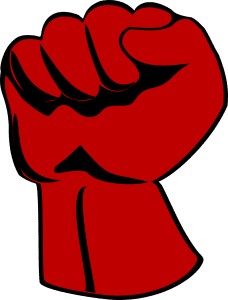
China Economy News: Growth Prospects for 2023-2024

Pushing Beyond the Hayflick Limit: New Horizons in Cellular Aging
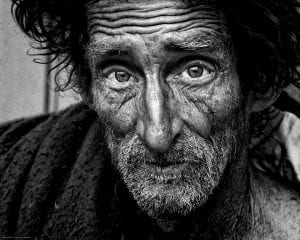
Living Paycheck-to-Paycheck: Surviving or Thriving

Application of AI in Cybersecurity
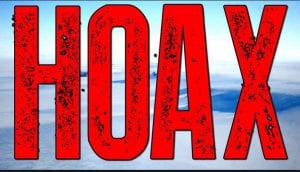
Renowned Expert Exposes the Origins of the Cholesterol Scam

Federal Fraud: Government’s Persistent Financial Mismanagement
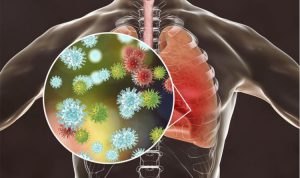
Coronavirus Mortality Rate: Media Hype?

The Hidden Agenda Game: Escaping the Obedience Cycle
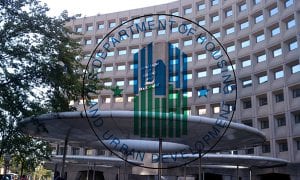
HUD Fraud: Relentless and Expanding Like the Energizer Bunny
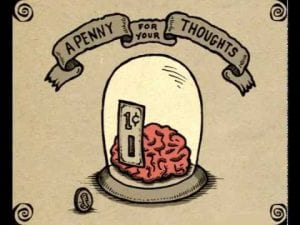
Financial Crisis History: Unveiling Opportunities Within

Coffee Trends: Are Americans Choosing Coffee Over Financial Freedom?
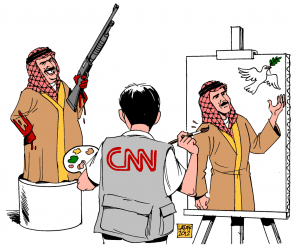
Unmasking Fake News: The Surge of Data Manipulation

Fake News Generator: AI Joins Misinformation Battle

F35 Problems Escalate: Aircraft Catches Fire on the Runway



